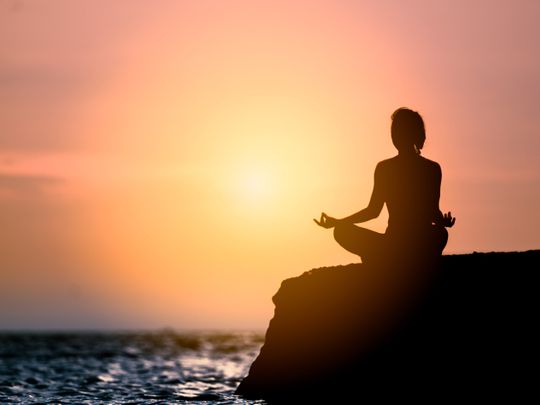
Nature changes; it changes continuously, whether one is aware of it or not, whether one likes it or not, it doesn’t matter. For nature, it is simply ‘natural’ to change, shift, move, evolve.
Humans, on the other hand, resist change. They labour to keep their comfort zone not only physically but also emotionally and mentally by way of remaining fixed to certain ideas, thoughts and habit patterns. These give them a sense of security and comfort of the familiarity.
The notions of ‘I am like this/ I am like that’/ (example ‘I am introvert’/ ‘I am outspoken’/ ‘I can’t get this right’/ ‘I can’ etc) are created to remain in familiar spaces. When humans approach future from mental structures of defined spaces, it creates anxiety.
The self-created fixed structures/identities are an illusion of safety. In living within these confines, one starts getting dictated by them. For example, if I consider myself as a perfectionist or playful, I take dominant standing of my life from that point of view and everything else becomes intolerable for me.
Structure which was supposed to provide comfort, starts generating discomfort. This always will be the case in any fixed-ness because in the process, one is pinching themselves off from newer perspectives, learnings. The inner nature prefers movement to avenues of growth
Dismantling fear
So, how does one deal with anxiety about the future, step into the unknown without preparedness structure?
One can bring into their conscious awareness, that the very nature of future is unpredictable. It is supposed to be like that. The sooner humans accept this, the better they can work this fact. Know that future can’t be controlled or predicted fully because it is constantly evolving, growing, shifting. One can deal with future by first being comfortable with the fact that one is dealing with this inconvertible fact of life-uncertainty. Acknowledge it, accept it and befriend it. This will dissolve much of the ongoing fear. As Buddhist monk, Pema Chodron says, ‘relax into impermanence.’
Some degree of anxiousness is normal; the purpose of this is to keep one in action, and be interested in life, rather than approaching life in laziness or indifference.
To deal with higher levels of fear, bring in the trust; trust that whatever comes up you can handle it. That ‘it is within my capacity to handle things and process them.’ You can trust that you have the energetic wherewithal to deal with things/events as they come up.
One doesn’t need to know all about their future; first, because it is fundamentally impossible to know all (it is meant to be that way so that you participate in shaping your own life), and second, it is fundamentally impossible to control all (events). Control is an illusion of control.
Working within the framework of this reality, one can then approach future’s unpredictability with the attitude of: ‘Whatever comes up, I can manage it.’ ‘What seems like falling-apart of things, is actually me outgrowing them’, ‘A new chapter is unfolding for me.’
Suffering occurs when there an absence of openness toward making and accepting changes. Do you notice that uncertainty and unpredictability which shake up your life, bring in massive inner and outer transformations, in a rapid or gradual way? And that, what crumbles first is your structural constructs? Do you notice that unlearning, letting go, is the first thing you learn?
Move, Shift, Grow
Fear is transient. Any emotion, including fear, when not fuelled, runs its course in one-and-a half minutes and subsides, says brain scientist Jim Bolte Taylor. To dissolve fear related to future, here’s a practice.
Sit in reflection. Acknowledge the emotion (fear or anxiety or restless). Be present with it. Simply observe it. Don’t stimulate or engage with it. Don’t give it storylines. Keep it free from your biases and opinions. Simply witness the emotion. No judgements. Just be present with the sensation. Where in the body do you feel the sensation? Breathe in and out of that space. Be gentle and allow the emotion to run its minute-and-a half course and dissipate.
Disclaimer: Urmila Rao is an emotional healer and a forgiveness teacher. All the ideas expressed herein are her own and not professional advice or medical prescription. Listen to her podcast ‘Meditative Reflections-Dhayan’ on Spotify. Email: hellokarmicwellness@gmail.com







